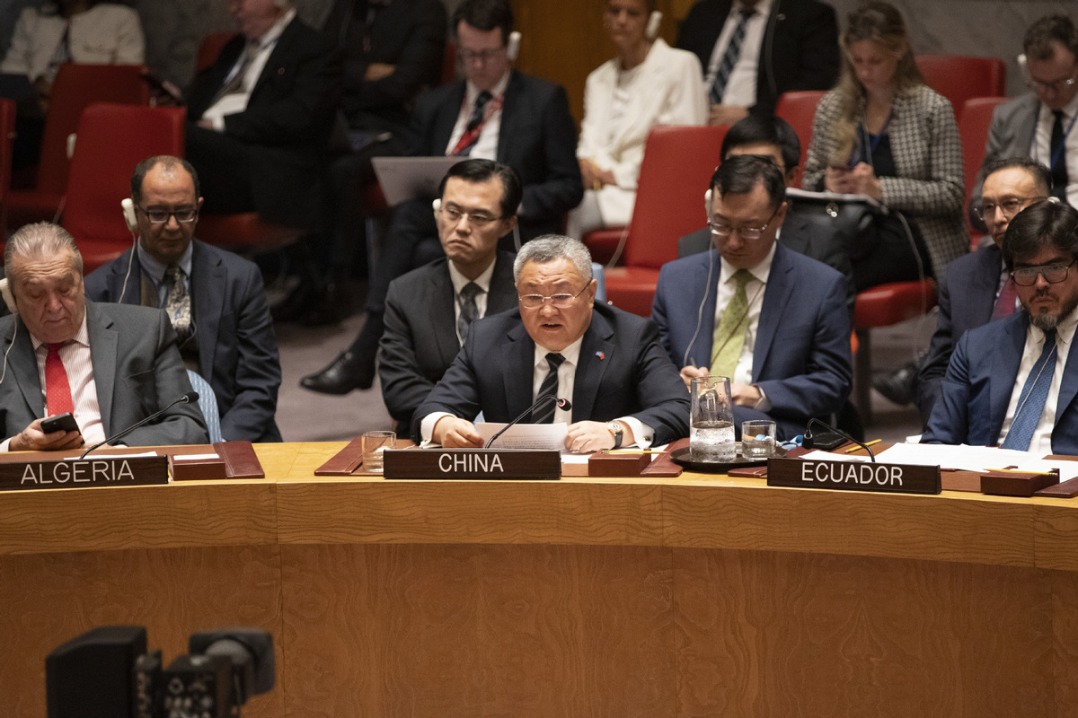Senate leader eases Trump trial rules


Senate Republican leader Mitch McConnell on Tuesday changed two of the rules he initially proposed to govern the impeachment trial of President Donald Trump, bowing to Republican senators who sought the changes.
The Republican-controlled Senate also defeated four amendments — all by party-line 53-47 votes — put forth by Senate Minority Leader Chuck Schumer of New York for documents that the White House had denied the House impeachment probe. The fourth attempt was to subpoena White House Chief of Staff Mick Mulvaney.
What McConnell proposed Monday night would have granted both sides two days each to make their case, meaning that if they used all of their 24 hours of allotted time, they would have been speaking on the floor until past midnight over several days. The trial was still in session as of 10:10 pm ET Tuesday.
McConnell's initial draft also didn't allow for information gathered during the House inquiry to be formally admitted into evidence until after the Senate voted at the end of phase one of the trial to subpoena additional witnesses.
When he read his resolution prior to the trial opening, McConnell changed it to give prosecutors more time after moderate Republican senators Rob Portman of Ohio and Susan Collins of Maine, who is up for re-election this year, pushed for them during a lunch meeting held immediately before the trial started shortly after 1 pm.
McConnell amended his resolution giving each side three days to make their opening arguments, which can last for up to 24 hours, the same amount of time given to the prosecution and defense during the 1999 impeachment trial of President Bill Clinton.
The Kentucky senator's initial draft also didn't allow for information gathered during the House inquiry to be formally admitted into evidence until after the Senate voted at the end of phase one of the trial to subpoena additional witnesses.
But the resolution submitted by McConnell also automatically enters the evidence collected by the House impeachment inquiry into the Senate record of the trial, in the same way that a similar resolution treated evidence during the 1999 impeachment trial of Clinton.
"Senator Collins and others raised concerns about the 24 hours of opening statements in two days and the admission of the House transcript in the record. Her position has been that the trial should follow the Clinton model as much as possible. She thinks these changes are a significant improvement," said Annie Clark, a spokeswoman for Collins.
Had McConnell stuck to his original timeline, the Senate could have wrapped up the trial by the middle of next week if lawmakers voted against calling additional witnesses and documents. Now the trial may overlap with Trump's State of the Union address scheduled for Feb 4.
Schumer and others criticized the initial proposal that would have made House impeachment managers make their arguments late at night when fewer people would be paying attention.
"Senator McConnell's resolution stipulates that key facts be delivered in the wee hours of the night simply because he doesn't want the American people to hear from them," Schumer said in a statement Monday.
McConnell's initial plans had deviated in several ways from those carried out in Clinton's case.
McConnell began his opening remarks before the formal start of the trial shortly after 1 pm by saying, "finally, some fairness. This is the fair road map for our trial," he said of the proposed rules resolution he would formally introduce, saying it will bring the "clarity and fairness that everyone deserves".
Schumer responded in the Senate by calling McConnell's rules "completely partisan" and "designed by President Trump and for President Trump''.
Senators took the first vote of the trial, rising at the clerk's call of their name to vote "aye" or "nay". The vote came shortly after 4:30 pm, about three hours after debate began, and proceeded along strict party lines.
The Senate first voted down an amendment by Schumer to subpoena White House emails, memos and other documents related to Trump's requests of Ukraine that is at the heart of the impeachment case against him.
In a July 25 phone call, Trump asked Ukrainian President Volodymyr Zelenskiy to investigate former vice-president Joe Biden, a 2020 Democratic candidate for the presidency, and his son, Hunter, who had joined the board of Ukrainian energy company Burisma while his father was vice-president.
The Trump administration refused to provide the documents during the House impeachment inquiry. Democrats argued that the documents are necessary for a fair trial that would hold the president accountable.
Republicans have repeatedly said it was the House's responsibility to gather all the evidence before sending articles of impeachment to the Senate, but the White House denied every request made by the House investigators.
After it was voted down, the Senate moved on to debate Schumer's second amendment requesting documents and records withheld by the State Department, including records involving Gordon Sondland, the US ambassador to the European Union.
After 7 pm, the Senate rejected Schumer's motion for documents from the White House Office of Management and Budget. After 9 pm, Schumer introduced the motion seeking Mulvaney's testimony.

































